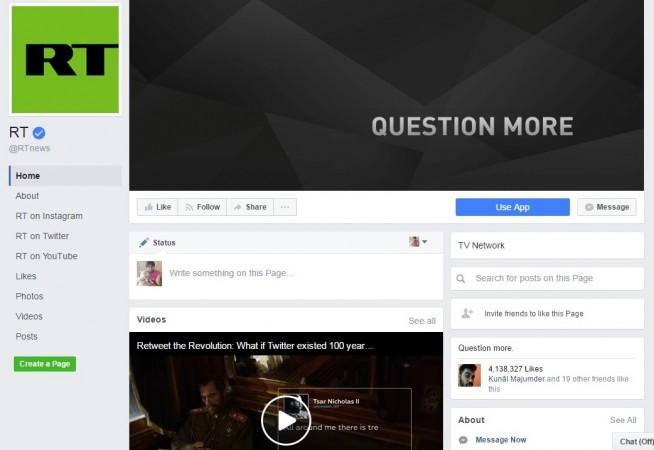
Though Russia Today's rights to share contents were restituted nearly 20 hours after it was barred from posting any new image, video or article link on Facebook, the script seems loaded against RT, with the news outlet losing access to Dataminr- a news discovery tool acquired by Twitter.
Also read: Russian President Putin says those who spread 'fake' news about Trump are 'worse than prostitutes'
Facebook rights restored
RT said in a news report on Thursday: "RT's rights to share such content as live streams, images and videos with its over 4 million followers on its Facebook page were restored on Thursday." The block had happened nearly 20 hours earlier, with RT saying: "We were blocked while livestreaming Obama's final press-conference. Such things happen because (for ex.) some other news media livestreams carry the same shots and feed, and Facebook considers this a copyright violation [sic]."
Russian Foreign Ministry spokeswoman Maria Zakharova said Facebook blocking RT in the manner that it did was "unacceptable." She added: "If it's actually perceived as censorship under a technical pretext, then it's unacceptable. It's also unacceptable because blocking of the competitive position that Russia Today (RT) TV channel has is obvious."
Twitter snubs RT
However, the social media woes of RT are far from over, it seems. Twitter has refused to renew the service contract of Dataminr with RT. A Russia Today report quoted Twitter as saying in an email: "Per our November 30, 2016, notice to you, Dataminr is electing not to renew the Renewal Term. As such, your agreement ended on December 31, 2016."
An RT report blamed the non-continuation of service to a Wall street Journal article that reportedly criticised the microblogging service for letting RT access Dataminr "after Twitter denied the CIA access to Dataminr services over fears the bureau was violating Twitter's terms of use to track individuals."
Is RT being singled out?
The US intelligence establishment has stressed that Russian intervention — at least in the form of fake news concerning Hillary Clinton — had led to many voters opting for Donald Trump in the US presidential elections. Russia Today had been tagged by US intelligence agencies as one of the key news outlets that reportedly influenced US voters by spreading fake news against Hillary Clinton.















